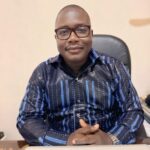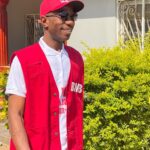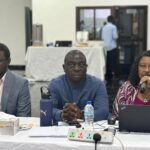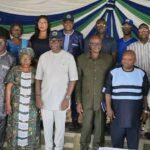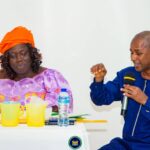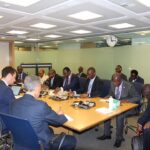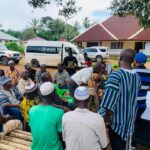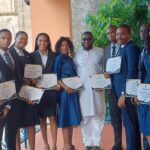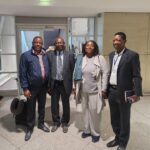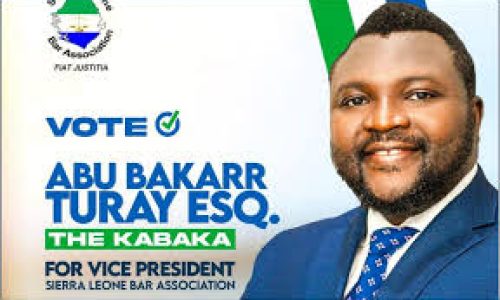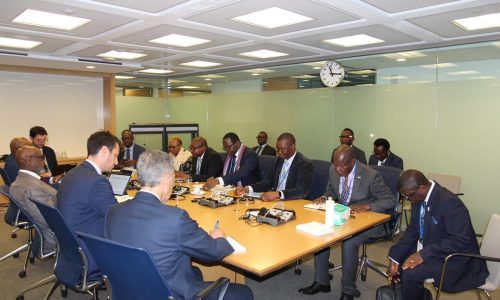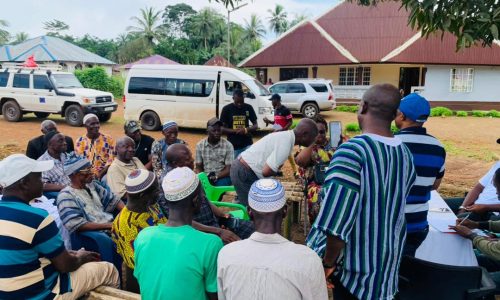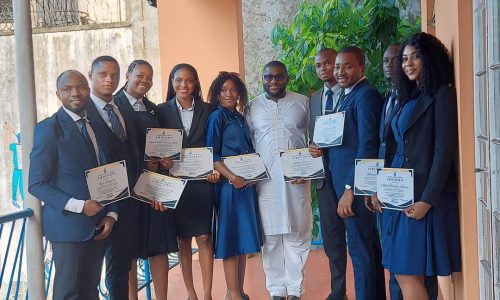Dr. SAMURA KAMARA’S LEADERSHIP OF THE APC HAS BEEN STEADFAST AND INNOVATIVE
By Titus Boye-Thompson, London Rarely has one man made such a meteoric rise in politics or left such an indelible mark within the political sphere as that which the erstwhile APC Flagbearer and leader going into the 2023 Presidential elections, Dr Samura Mathew Wilson Kamara has done in so short a time. From the ashes of a rather shocked defeat in 2018 after a polling that saw power being transferred by an incumbent political party to its arch rival, came the death knell for a political party that has held sway over the reins of power i Sierra Leone for the longest time since gaining independence in 1961. The manner in which that loss was suffered left many within the existing polity in deep shock and dismay as the circumstances held nothing to indicate that the country had rejected the APC or Dr Samura Kamara. However, in a sinister recollection of those dark events, eye witnesses pointed to a plot by the then political infrastructure to deny a man worthy of leading the APC to another term of political leadership at the expense of the onward aspirations of others within the APC who had wanted to play God above all else. A senior APC executive member of that era told this author that on close examination, it was Samura Kamara who lost the 2018 elections not the APC. That was said before the new government came in with such egregious power grabbing and a sweeping determination to vacate some of the APC Parliamentarians from their seats and immediately replace them with the opposition candidates who never got the mandate of the people to represent them in the first place. As a result, the APC majority in Parliament was wiped out and that provided the framework for a series of monkey trades and demagoguery, leading to the claim that the APC still had some leverage over the incoming President derelict. From the ashes of that loss, Dr Samura Kamara rose like a phoenix to rebuild a broken APC party. He gained the sympathy of the voters because on review, many quickly accepted the fact that this was a man who had been hard done by a political system stacked up against him, mainly because may felt that he was a “newcomer,” more of a “technocrat” than “a lying politician.” When many abandoned the party because of the threat of impending which hunt, political persecution and tribal bigotry, Dr Kamara made inroads into every nook and cranny of the political infrastructure across the country but more particularly, he endeared himself to the grassroots of the APC party. He became “the darling boy” of APC leadership, he was welcomed everywhere, made good use of the religious plurality ad tolerance we enjoy as a nation and thus enabling him to enter into mosques and churches alike and was easily welcomed. Through his efforts to rebuilding his personal popularity and political appeal, he raised the hopes of the grassroots that given another chance, this is the ma to take them back to power come the next elections. Dr Samura’s political maturity and political appeal was not by accident but by due regard to the wishes of the people and a clear demonstration that his brand of politics was that which elevated service ad personal responsibility above that of greed and personal gain. So it is that even as leader of the opposition, he was prosecuted and persecuted yet he remained steadfast in his goal to lead the APC to political supremacy. I the lead up to the APC Convention to choose a flag bearer in 2022, Dr Samura had garnered much support all round that his campaign became the subject of a hijack from within the APC Party whereby those who had formed a cabal to capture the Party executive roped themselves around Dr Samura Kamara’s winning allure and labelled themselves Team A. Dr Samura Kamara’s leadership of the APC entered a decisive stage when he immediately distanced himself from the ruminants of the Team A propagandists. To his chagrin, the parasites had latched on to their host ad were wont to let go. In the event, he had to be forced to retain the baggage of a running mate not of his own choosing as the Party went into the 2023 elections and invariably suffered a more dishonourable defeat that to this day remain conclusive. Nonetheless, even though the APC Party took a position to reject the results of that election, the executives, spurred on by the more radical Team A components, forced Dr Samura Kamara to relinquish the title of Party Leader as stated in the 2022 Constitution even though provisions existed for his leadership to be extended or otherwise that his legalistic position challenged due to the uncertainty of his loss or otherwise constitutional interpretation of whether he was indeed under an obligation to hand over leadership of the Party. In his handing over speech, he made it clear that he was abiding by the more open context of the Party’s 2022 Constitution and that he would rather had over the Party Leadership than embroil the Party in a protracted legal dispute. Those who allege that Dr Samura Kamara had not bee a radical or strong leader are inept at appreciating the style of leadership that Dr Kamara unveils. He has been watchful and determined to lead by example and therefore has throughout these troubled times, made very strenuous efforts to put the interests of the Party above his own personal interests. Furthermore, and more importantly, he has put the country first in all the decisions he has made. Firstly, he acquiesced to an SLPP win in 2018 when he was called upon by the Catholic Church and some other leaders of the APC in the interest of peace within the polity, he was not ready to do the same in 2023 and either did he countenance such an idea. Instead, he moved the Party to take a most innovative and

